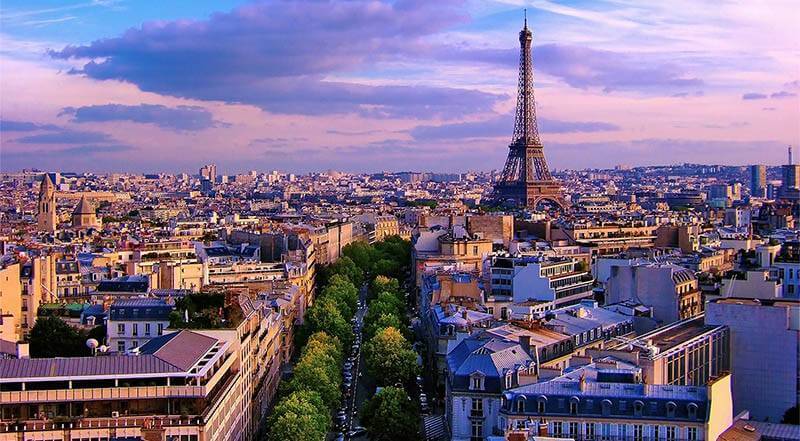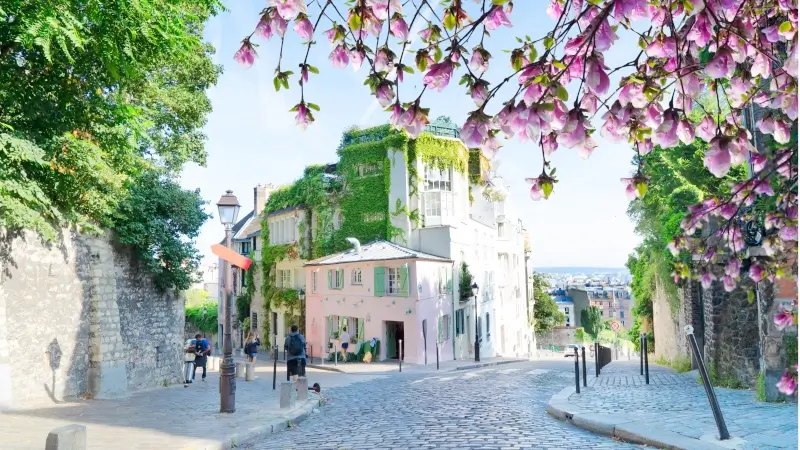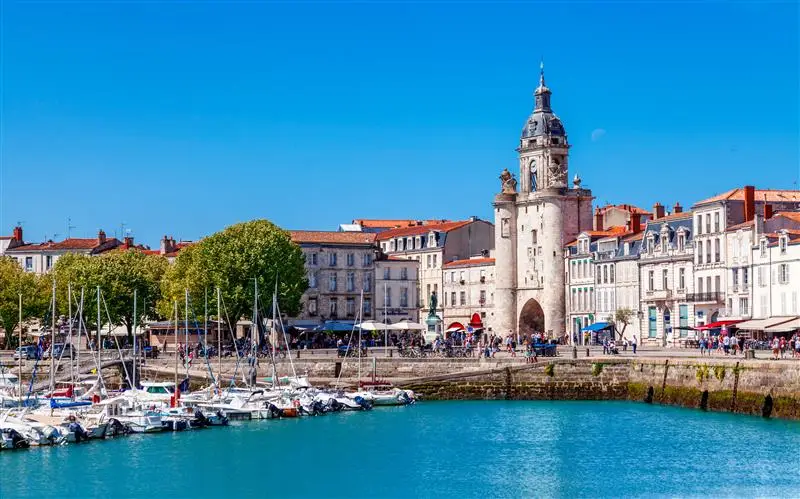Infrastructure In France
France boasts perhaps the world’s best infrastructure, and it’s a bargain. Cable TV, internet, and telephone, as well as the Metro, the bus, and the RER train system… all are likely less costly than comparable services where you’re living now.
In Paris, you can live happily car-free, walking nearly anywhere you’d want to go. The butcher, the baker, the grocer, the wine shop, a half-dozen busy cafes, and as many lovely parks and gardens are all less than 15 minutes’ walk from almost any point in central Paris.
And, when you want to venture beyond your quartier, the Metro will transport you from restaurant to nightclub, from museum to cafe for around US$2.
All in a setting of architectural delights, historic landmarks, manicured gardens, and well-tended parks.
France Infrastructure – What to Expect
Traveling, or living in a new country can be both fun and adventurous, but American and French cultures can be pretty different.
The legal systems also differ between countries. The manner in which communication and other infrastructures behave, or are operated also vary between countries.
When planning to visit or retire in France, it pays to have some understanding of the country’s general infrastructure. Either way, you can rest assured, knowing its infrastructure is as high as it can get.
Transportation In France
France prides itself on having among the most sophisticated infrastructures in the world. Apart from the government’s heavy investment, advancement in technology has played a significant role in constructing this source of pride.
Just like you would expect from any other country, all modes of transport are available, only that France enjoys a much wider network of the same.
You can travel by air, land, rail, and rivers too, with relative ease and comfort.
France’s rail system is technologically advanced in many standards. It uses some of the world’s fastest trains.
The rail system is operated by a state-owned company – French National Railways. In total, the country has 19,486 (31939) miles of rail lines.
All the roads, measuring about 514,065 miles, are paved. It is worth mentioning that approximately 47% of France’s waterways are under heavy utilization. In total, the country has a whopping 474 airports, and the majority of them serve international traffic.
Among the biggest international airports in France is Charles de Gaulle and it offers its services around the globe.
The majority of the harbors and ports are sufficiently equipped to cater for freights and passenger ships needs.
Mulhouse, Saint Nazaire, Strasbourg, Cherbourg, La Pallice, Rouen, Nantes, Marseille, Dunkirk, Bordeaux, Saint-Malo, Le Havre and Boulogne are the major port cities in France.
So, when visiting the rural areas, note that there aren’t regular buses –like is the case in the cities.
Fares And Passes
Metro
One metro ticket will cost you €1.90. You may use it for one journey and the connections too. You may also choose to buy ten white colored tickets in a book, at €16. They are available either on the ticket machines, offices, metro stations, or tobacconists. Remember to keep the ticket with you until the end of the journey because you may be asked to show them during inspections. Failure to present a ticket may attract a fine.
RER
Tickets and price in RER are the same as those of Metro, as long as you do not leave the city limits. The RER stations have their ticket machines and offices. Should you plan to go outside the city, ensure to obtain a pass or a ticket that covers for the entire journey.
Failure to do so denies you automatic access through the barriers once you arrive and you may even be penalized. An RER ticket takes care of your journey and all the connections within Paris.
Bus
If you are using the bus, you use similar tickets with those of Metro. There are no distance limits apart from Noctilien, Balabus and routes 221, 297, 299, 350 and 351. There is also the option of purchasing single tickets from the bus driver, but these come with restrictions because the ticket is only valid for that journey – and with no connections.
As such, if by any chance you change the bus route or decide to connect with another type of public transport, you will require another ticket. That pack of ten tickets or travel pass will come in handy in such instances.
Transport is free for children aged below four years. Kids between four and eleven years pay half the price. If you intend to live in France, and consequently drive yourself around most of the time, learn everything you need to know about highways in France.
Communications In France
As far as communications are concerned, French infrastructure ranks high in terms of advancement, compared to that of other countries. In Europe, France has the 3rd largest telecoms market. Telco Orange Group dominates telecoms.
The mobile sector has four dominating providers. France has a robust and highly diversified system of communication.
The French government has played a major role to ensure availability of key communication services inclusive of telephones, radio, and television, as well as postal services.
The press has quite a long history in the country, and is internationally regarded as first-grade. National and regional magazines and newspapers are widely circulated in the country and usually, offer crucial information for the people living in France.
French Infrastructure with respect to the Internet is widely available. You can get wifi for free, or pay as you go. The majority of French hotels have business services with Internet access, and others have high-speed wireless access.
Nowadays, most accommodations provide in-room wi-fi, at a premium cost sometimes. If you plan to stay in Paris you may want to take advantage of the 296 public places with free wifi. This includes areas such as civic centers, squares, libraries, and parks.
When dialing to the United States and Canada from France, using a prepaid cell phone, it will cost you about €1 per minute and almost twice of this when making calls to other parts of the world.
All the incoming calls cost you nothing. If you take a cell phone with you to France, making phone calls will cost you an arm and maybe a leg. Kindly consult with your carrier to understand your options.
The majority of local mobile phone operators offer an all inclusive package of 35 euros comprising of the internet, French TV, free local and international calls. However, if you are living in a rental apartment with a telephone, don’t call abroad without asking the rates first.
Quality Of Life And Health
France has always ranked high when it comes to the quality of life its citizenry enjoy.
As far a health care infrastructure in France is concerned, it ranks position three in Europe and fifth in the world. It is also completely free for residents of the country.
With this reputation, it explains why the country is among the leading expat and tourist destinations in the world with more than 79.5 million visitors.
Other things that give France an upper hand include its unique regional diversity, as well as the potential of land resource, being the largest country in Europe by surface area.
French Law
Besides having a little bit of knowledge about the infrastructure in France, It is imperative that you understand a few things about the laws of the land to avoid problems. Take note of the following:
• You are subject to French laws even if they appear harsh by American standards
• If you fail to help a person who is in danger, apparently, it is illegal. For instance, you may be charged if you fail to respond to calls for urgent assistance, or you witness a car accident and go without reporting to emergency services
• Carry with you an identification document at all times such as a passport
• Traffic infringements attract severe punishments
• You risk detention if you take photos of security services including the police












 . '
. '
 . '
. '
 . '
. '
 . '
. '
 . '
. '








